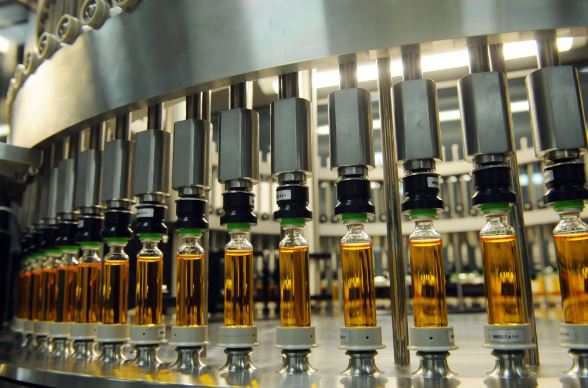South Africa’s public health care system has run out of human insulin pens for people with diabetes, a consequence of the pharmaceutical industry’s shift in production priorities to lucrative weight-loss drugs that use similar devices for delivery.
For a decade, Novo Nordisk supplied South Africa with human insulin pens. However, the company chose not to renew its contract, which expired last month, leaving no other company to bid on the new contract to supply 14 million pens over three years at approximately $2 per pen.
Novo Nordisk’s drugs Ozempic and Wegovy, widely prescribed in the U.S. for weight loss, are sold in single-use pens produced by the same contracted manufacturers who make the multidose insulin pens.
Novo Nordisk, which dominates the global market for insulin pens, has supplied South Africa since 2014. Eli Lilly, another major producer, has recently struggled to meet the high demand for its weight-loss drug, Zepbound.
“The global demand for Ozempic and these drugs is causing this shift in focus to more profitable lines,” said Khadija Jamaloodien, the director of sector-wide procurement for South Africa’s health service.
While Novo Nordisk continues to supply human insulin in vials to South Africa, pens are favored for their ease of use and precision. Insulin pens allow for setting a precise dose with a dial and quickly injecting with a needle tip, whereas vials require drawing insulin into a syringe, a process prone to dosing errors.
In 2014, South Africa’s health system phased out the vial system for most patients. Recently, the National Department of Health instructed clinicians to teach patients to use vials and syringes instead of pens, sparking concern among diabetes specialists.
Ms. Jamaloodien’s office has advised clinicians to reserve the remaining stock of pens for those who would struggle most with using vials and syringes — small children, the elderly, and visually impaired individuals.
Boitumelo Molema, 22, a college student, recently visited her clinic in Mafikeng to get her monthly supply of five insulin pens, only to find they were out of stock. After visiting two more clinics with no success, she bought them from a private clinic for $10 each, a cost she struggles to afford.
Ms. James-Brown of Novo Nordisk stated that the company informed South Africa last year about not bidding on the next contract. However, Ms. Jamaloodien claimed the company only mentioned a “supply constraint,” not a complete exit, which became clear only after the contract process ended in January. Her department was slow to issue a new tender due to staffing constraints and has been scrambling to find a new supplier.
Since 1985, Novo Nordisk has made insulin pens, considered the standard of care for Type 1 diabetics in industrialized countries and wealthy individuals in low-income countries. South Africa is unique among low-resource countries in supplying insulin pens through its public health service.
Eighty percent of people with diabetes live in low- and middle-income countries, where GLP-1 drugs like Ozempic, used for diabetes treatment in high-income countries, are not on the World Health Organization’s essential medicines list or included in diabetes treatment guidelines.
Novo Nordisk has an insulin access policy, offering insulin vials for $3 each to low- and middle-income countries and $2 to humanitarian groups like Médecins Sans Frontières (MSF). Last year, Novo Nordisk signed an agreement with South African drugmaker Aspen Pharmacare to produce 60 million vials by 2026.
MSF reports that clinicians in crisis zones like Gaza and Ukraine, where patients have lost access to insulin pens, struggle with the transition to vials and syringes. Measuring insulin in the dark without electricity is much easier with pens, which click to indicate increments, compared to syringes.
The global shift in production priorities highlights the tension between profitable pharmaceutical ventures and essential public health needs, leaving patients like those in South Africa to navigate challenging transitions and face potential health risks.

